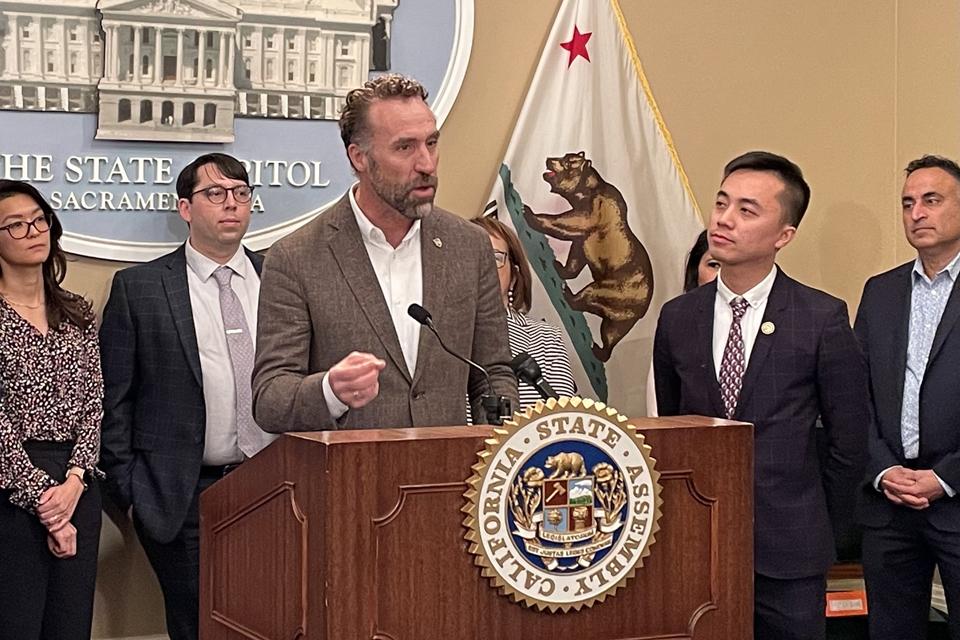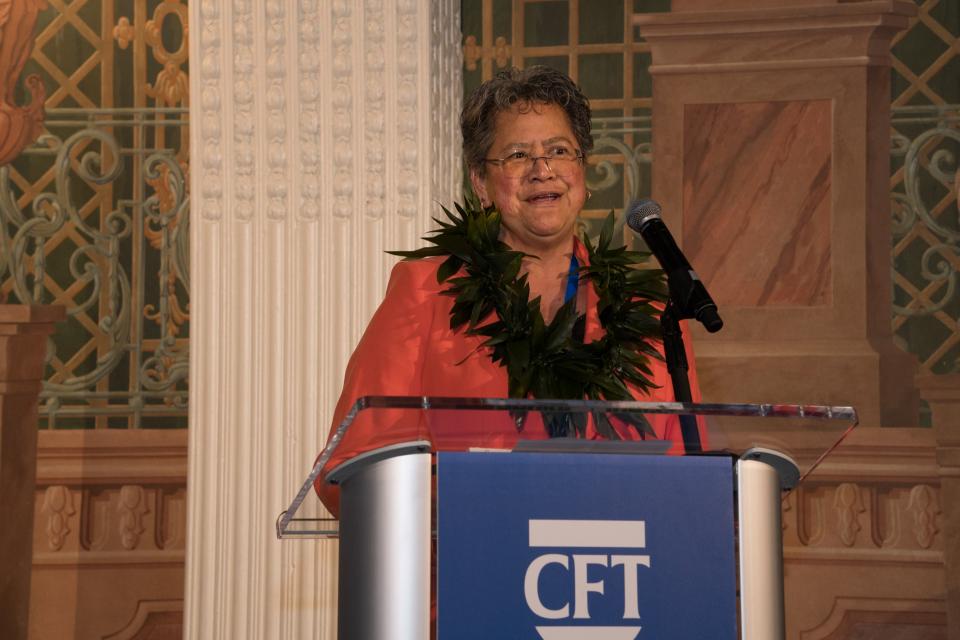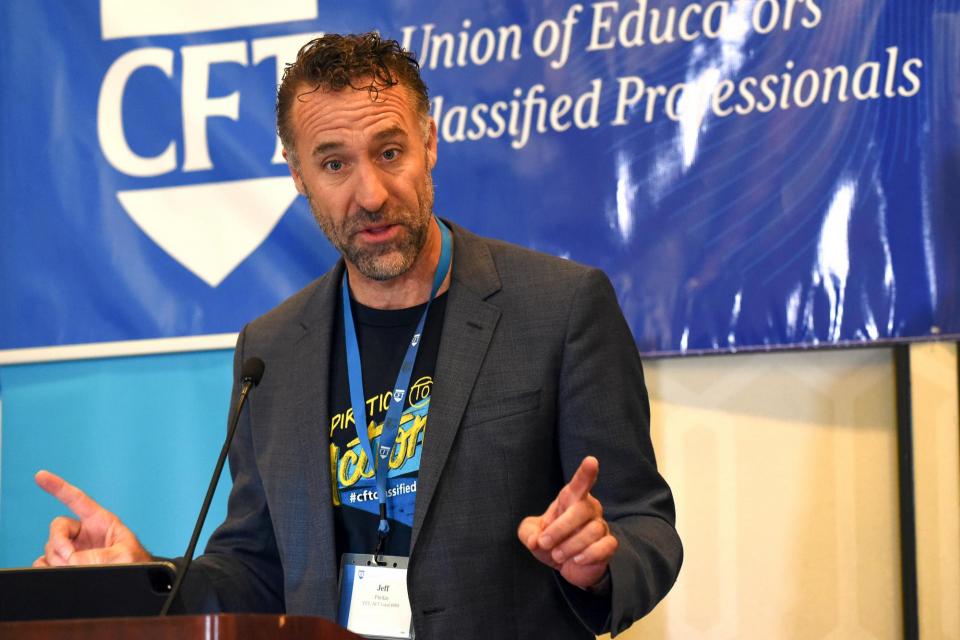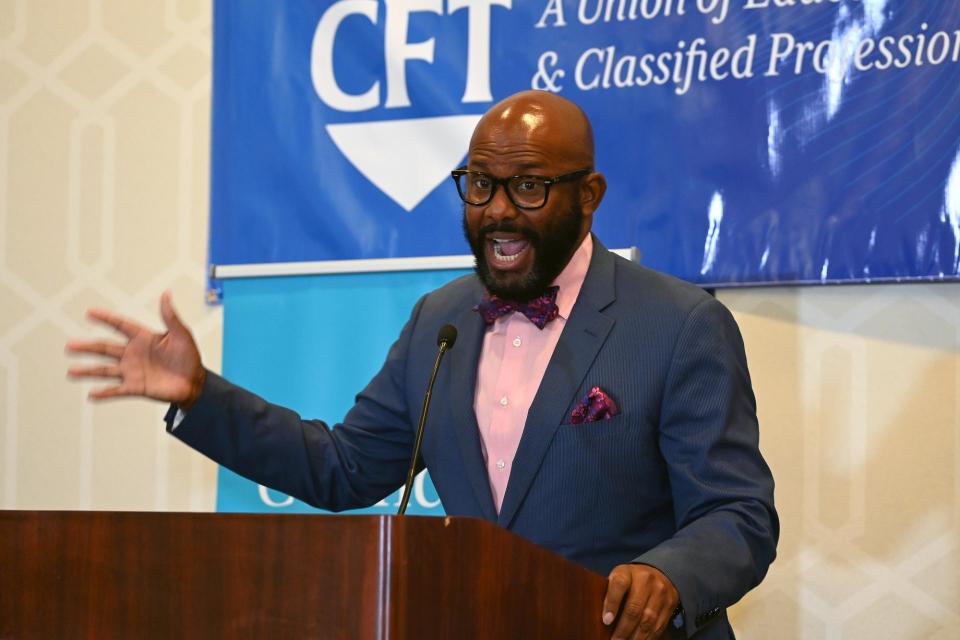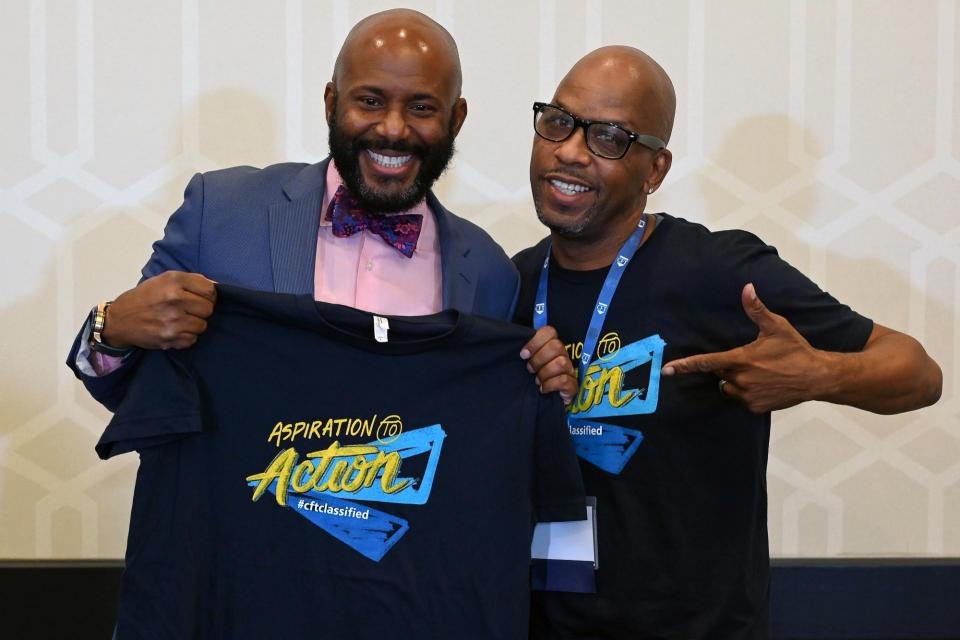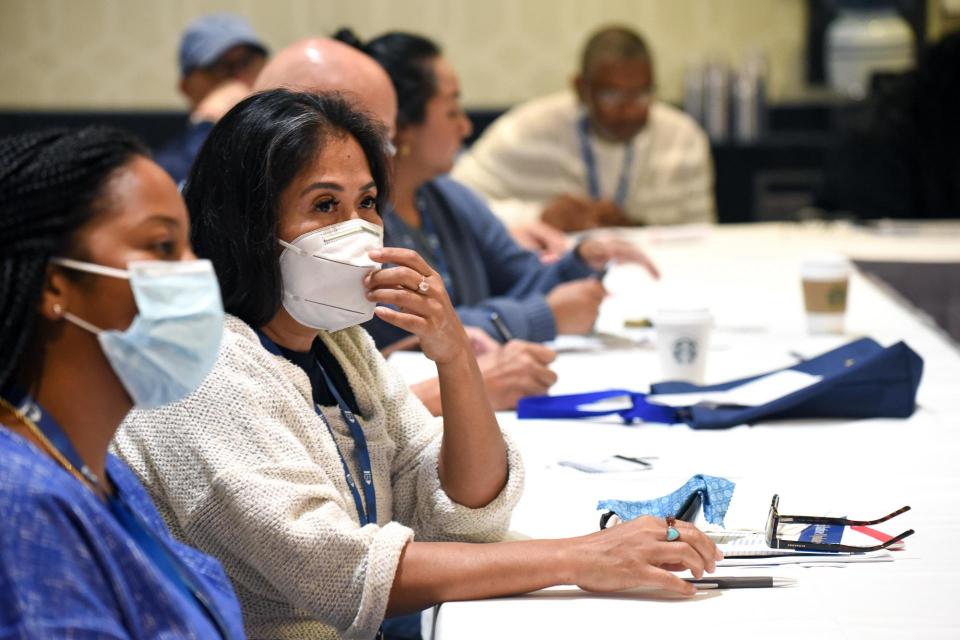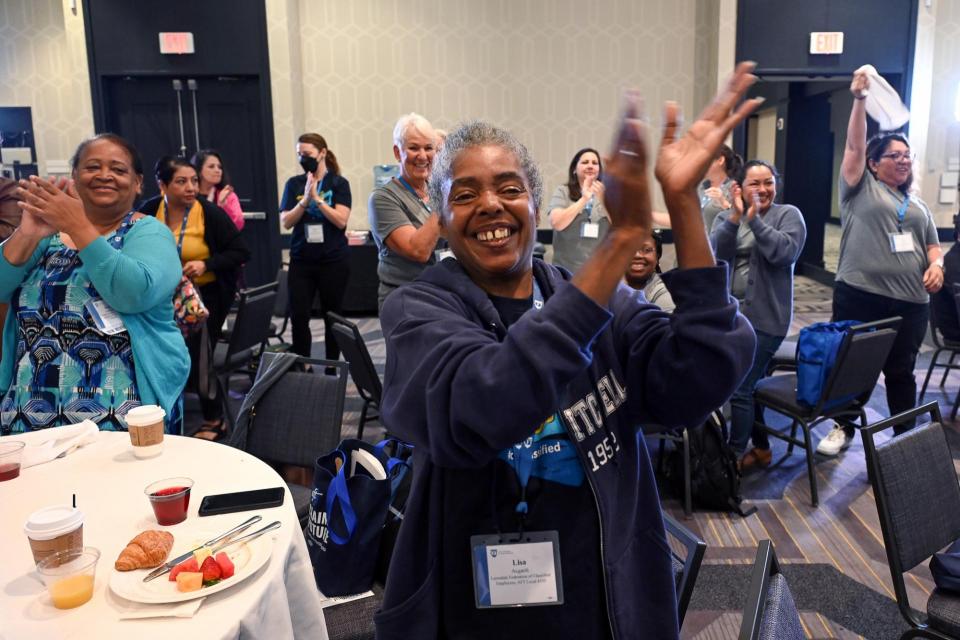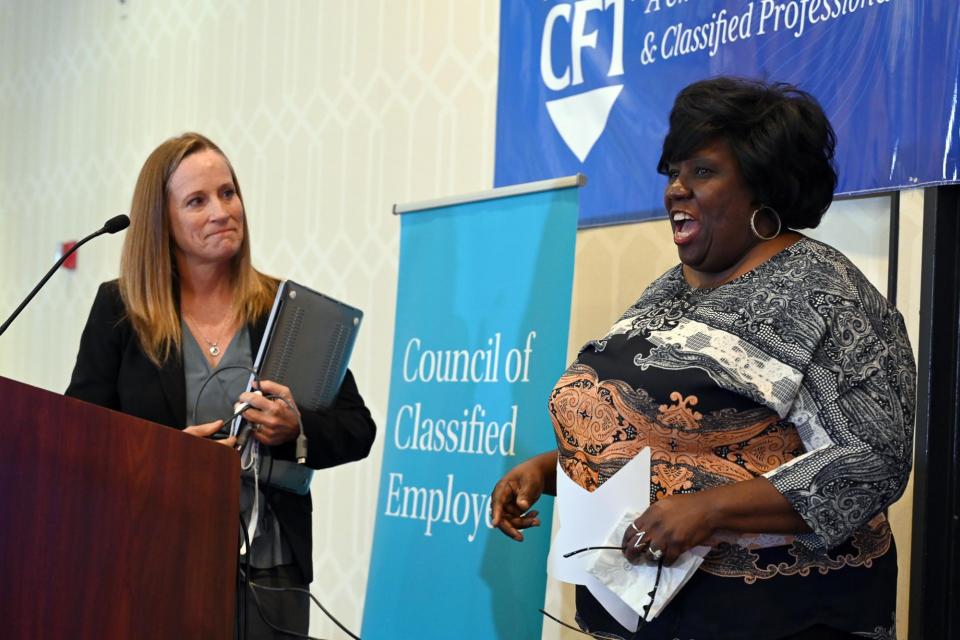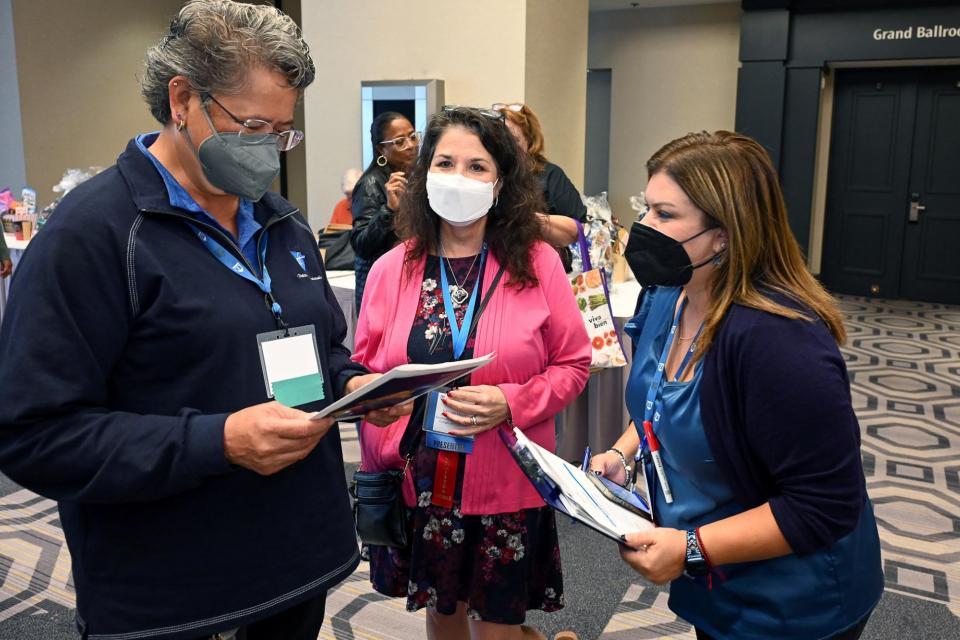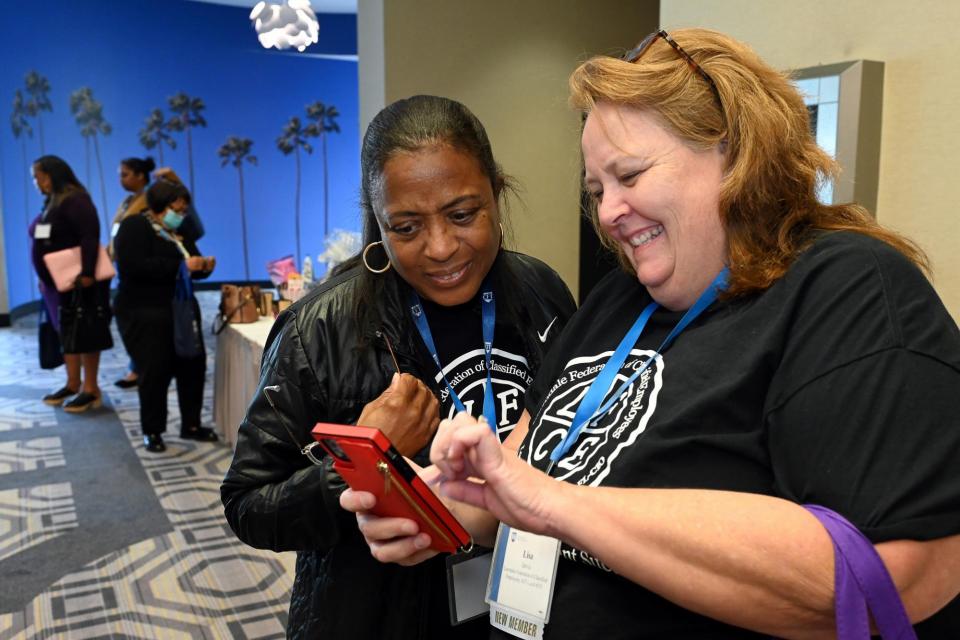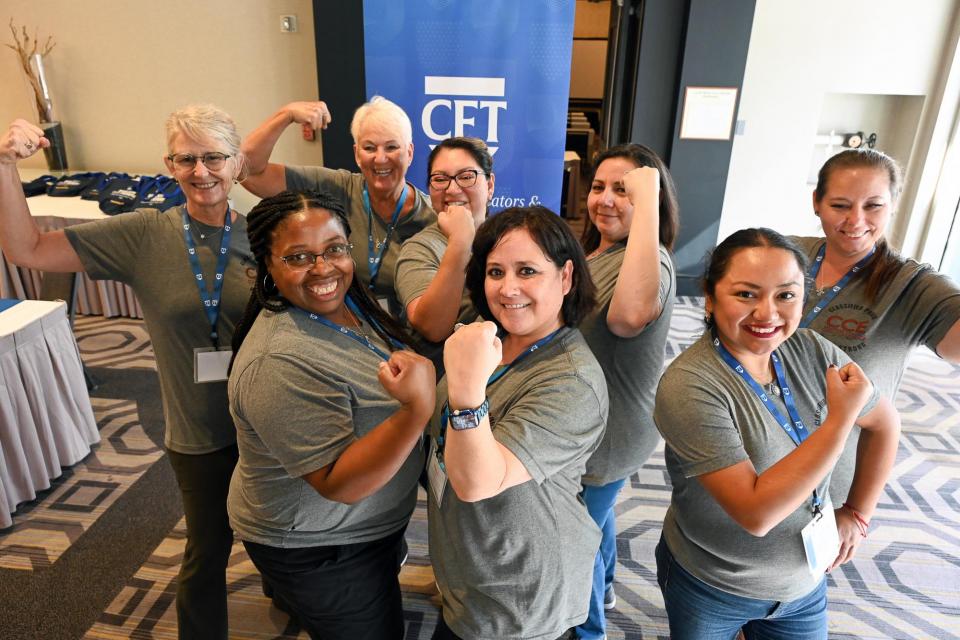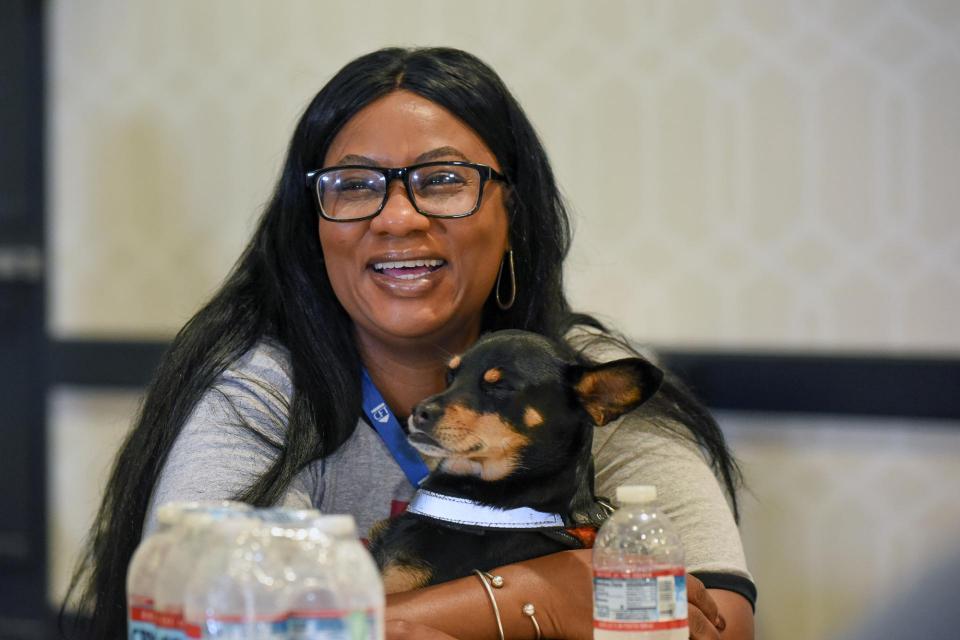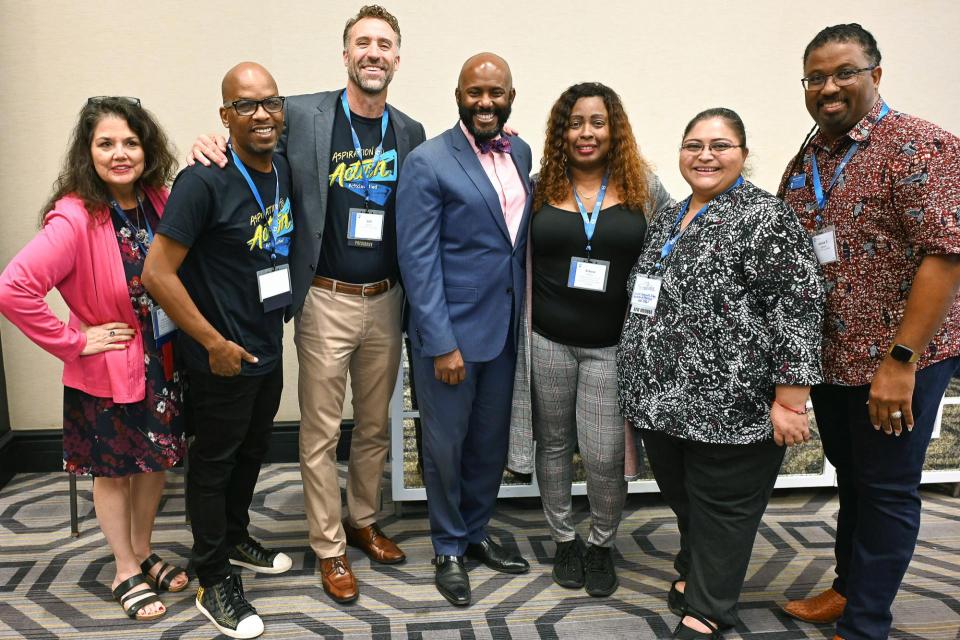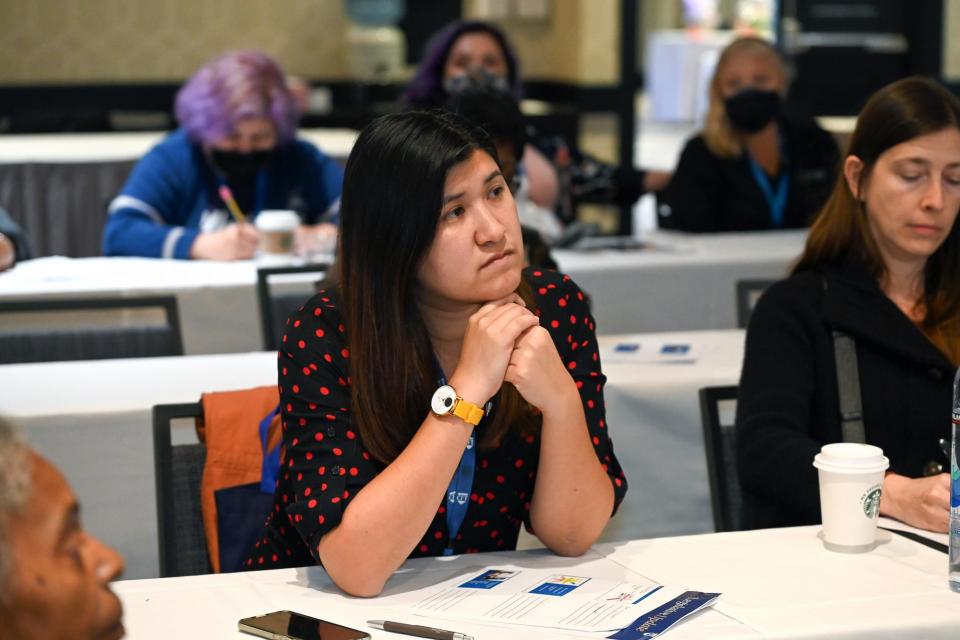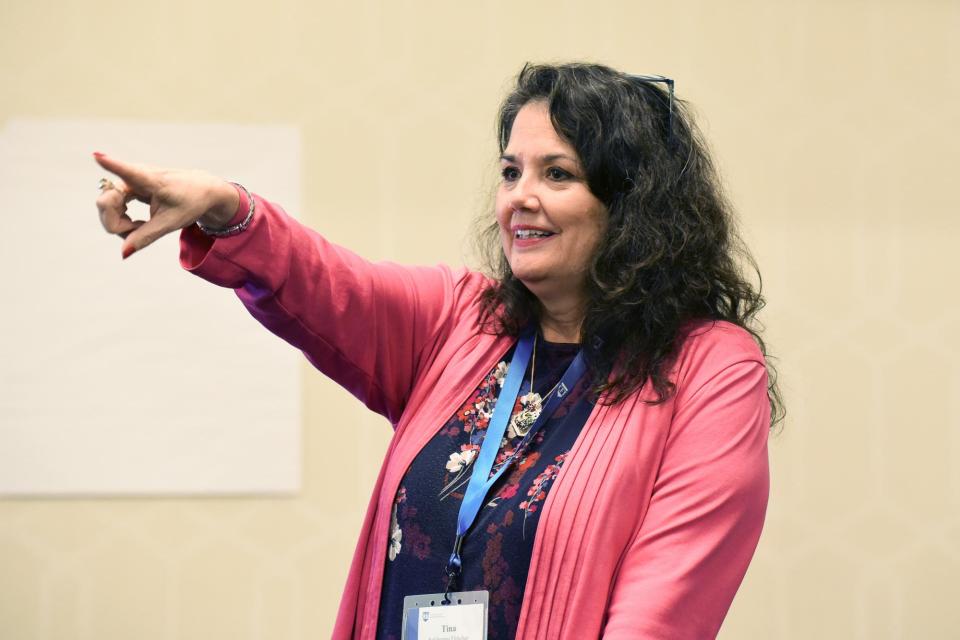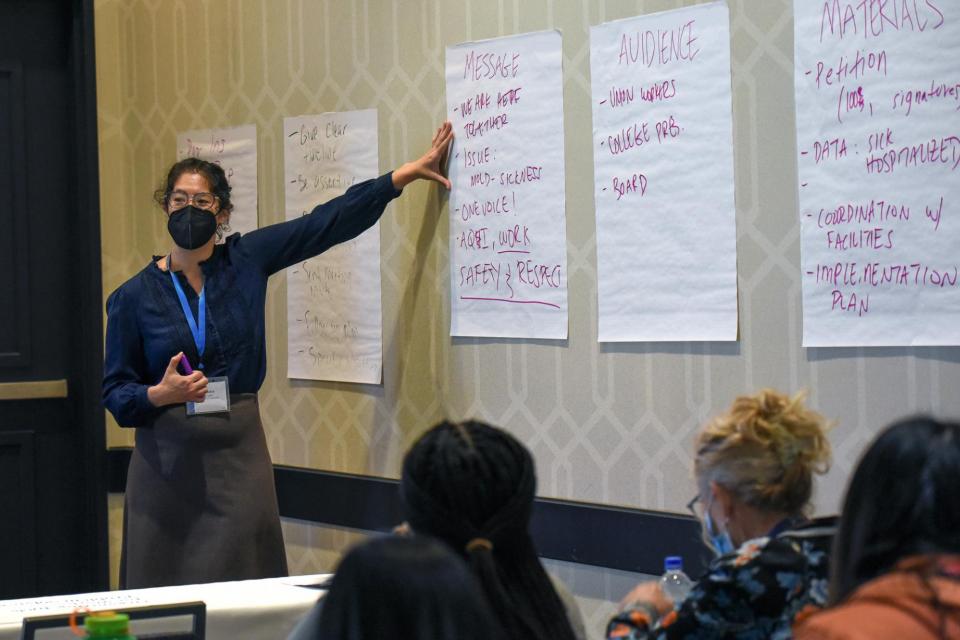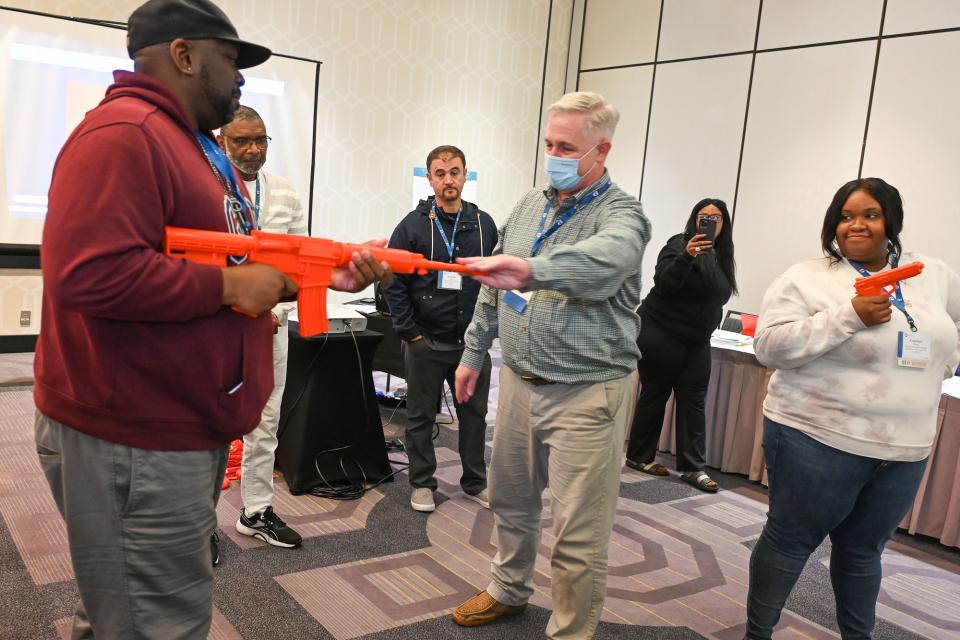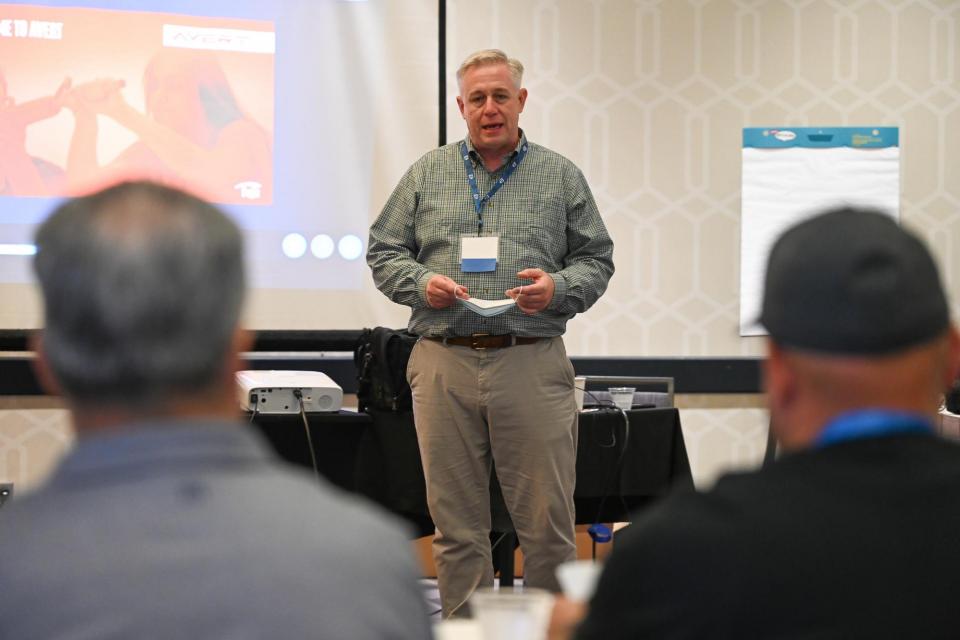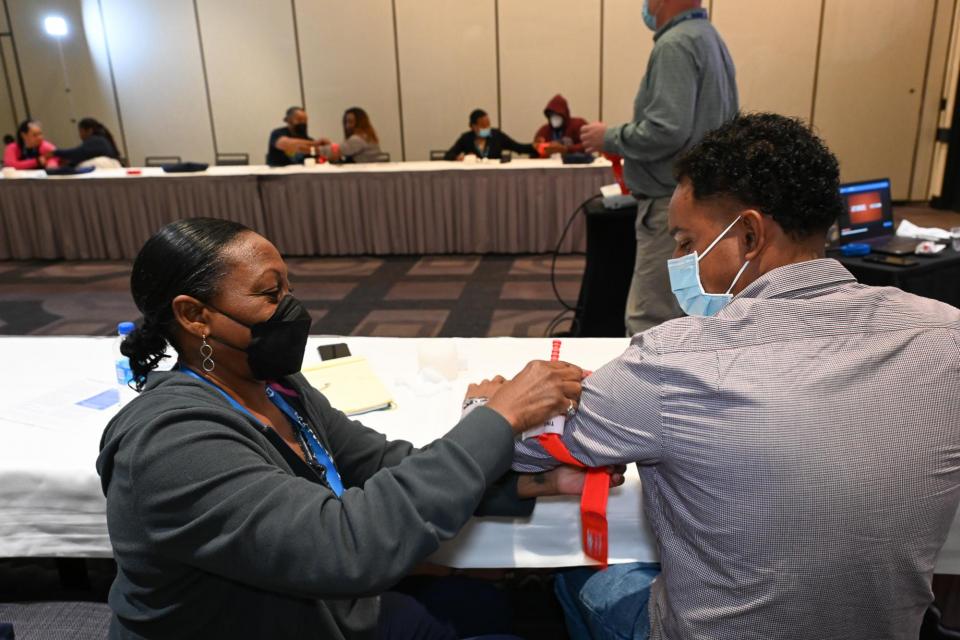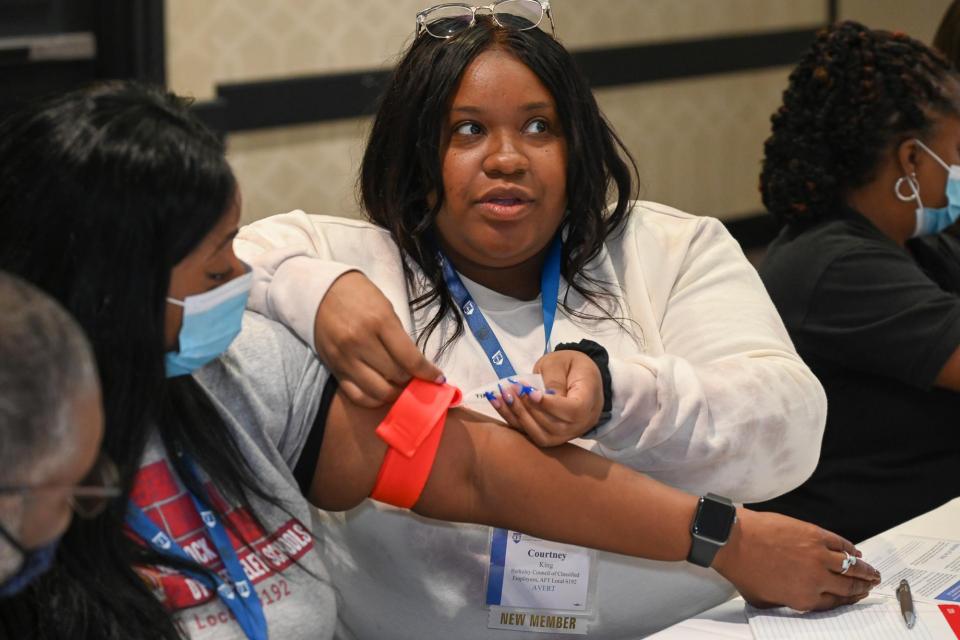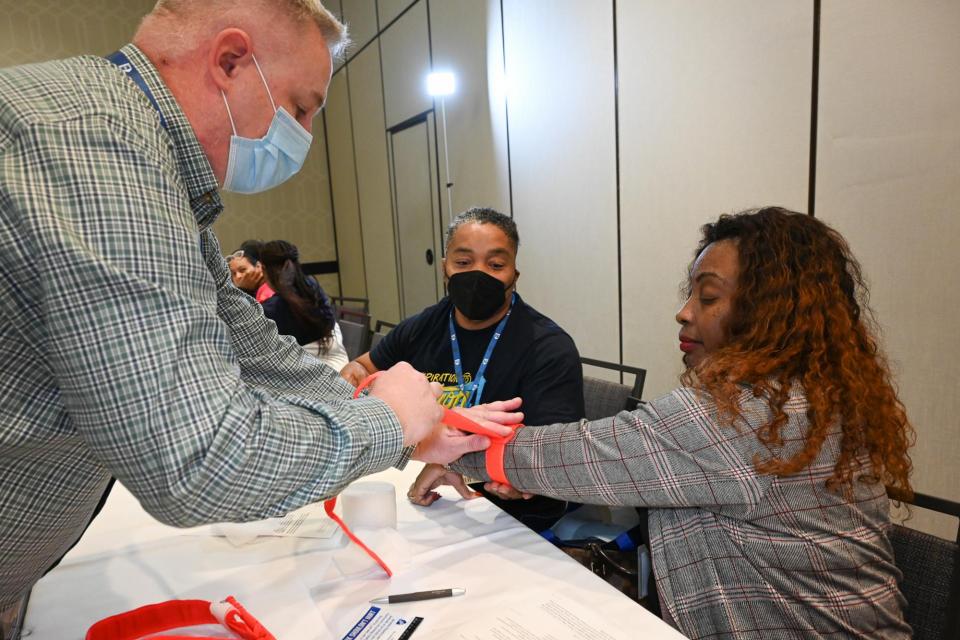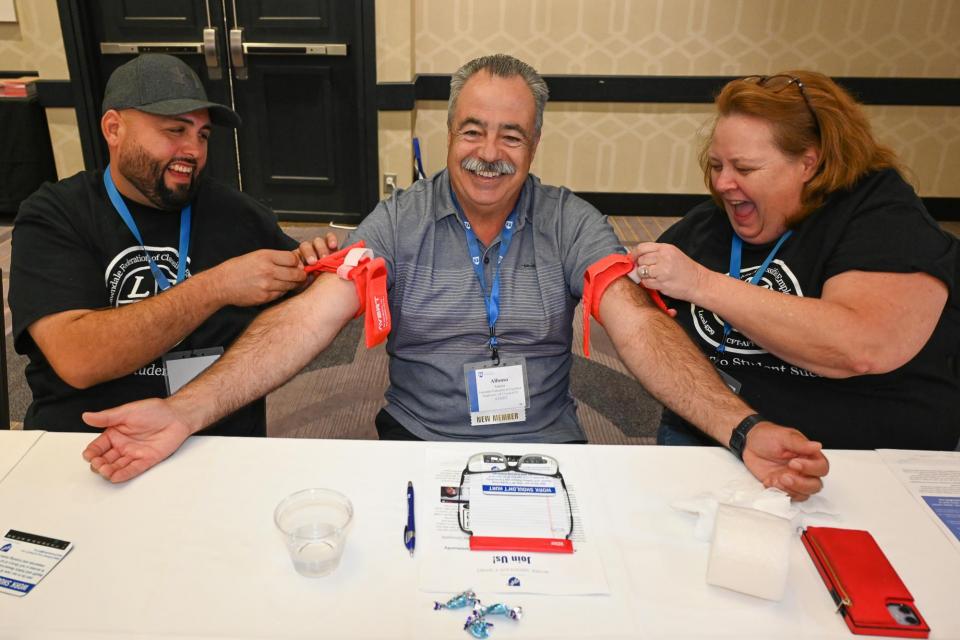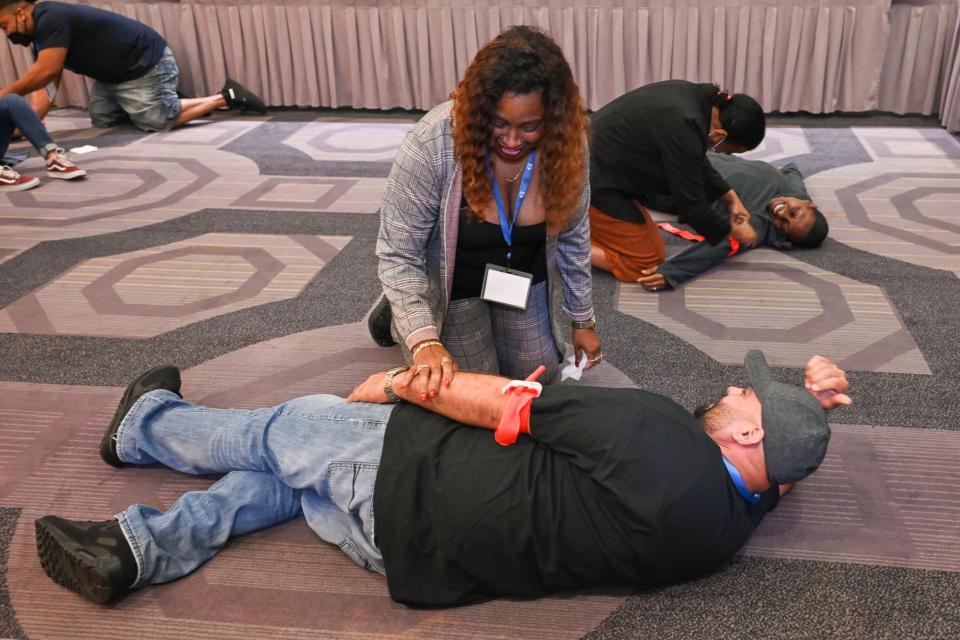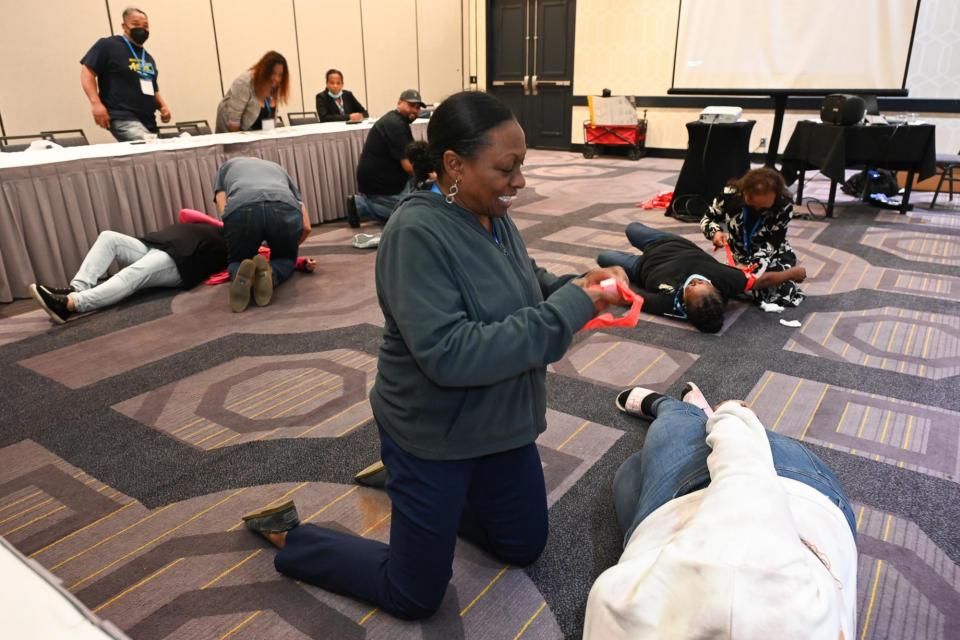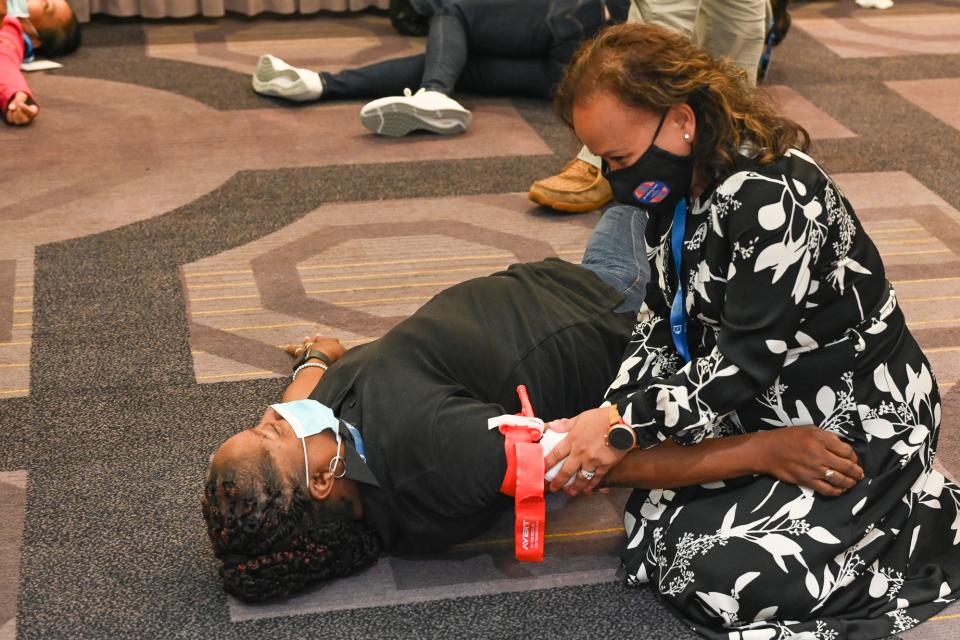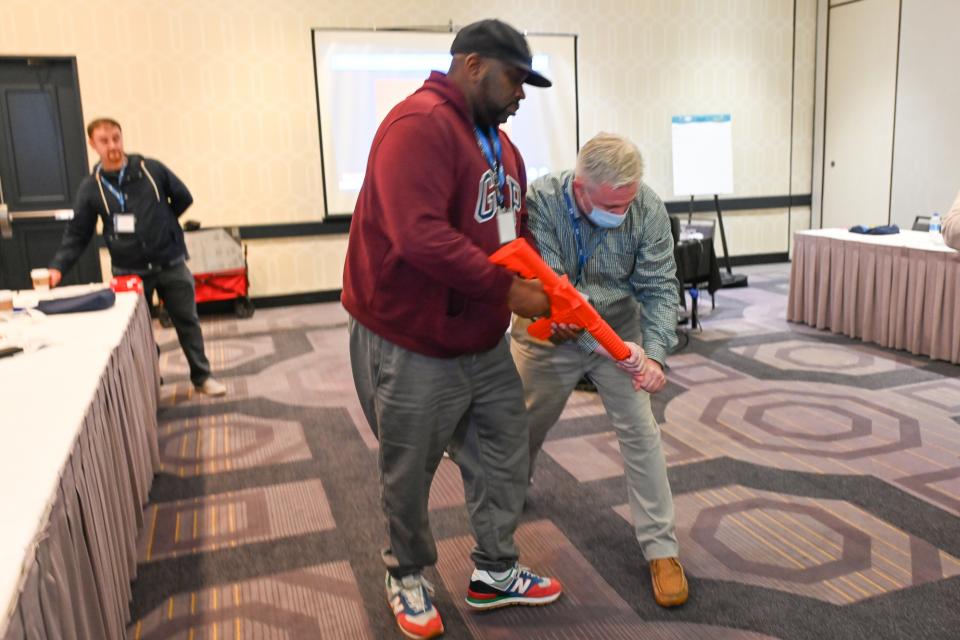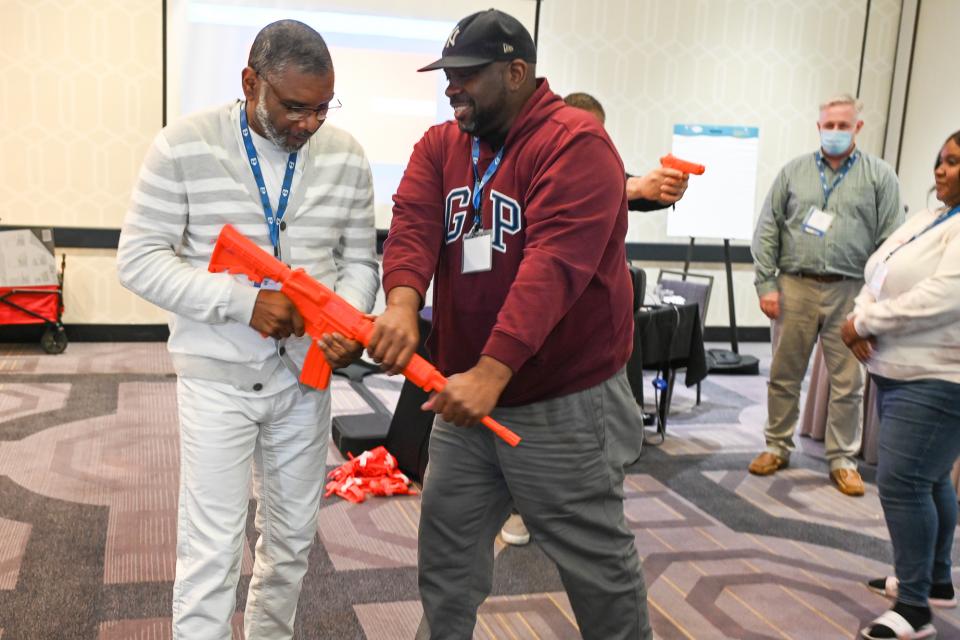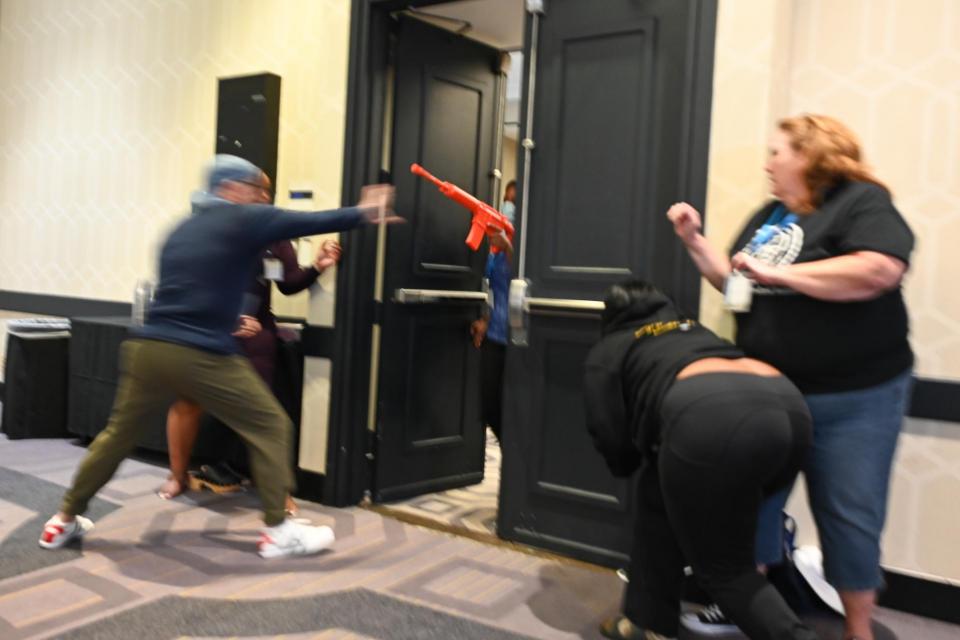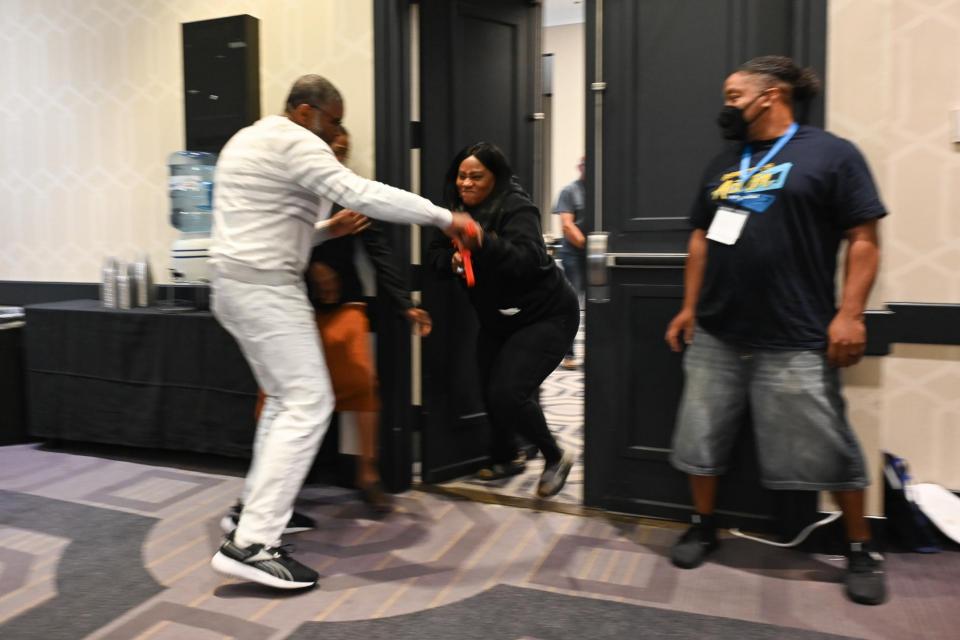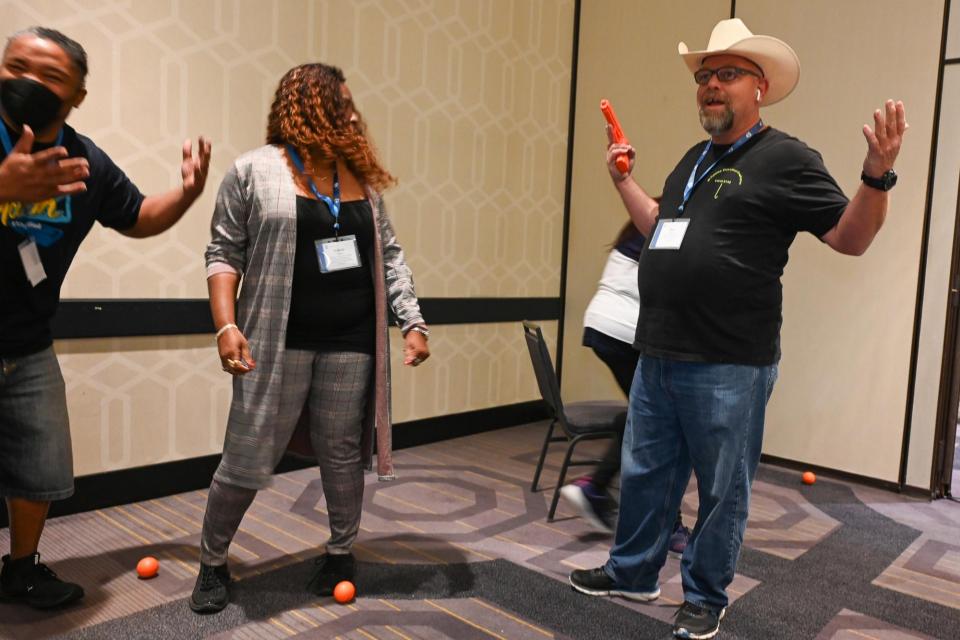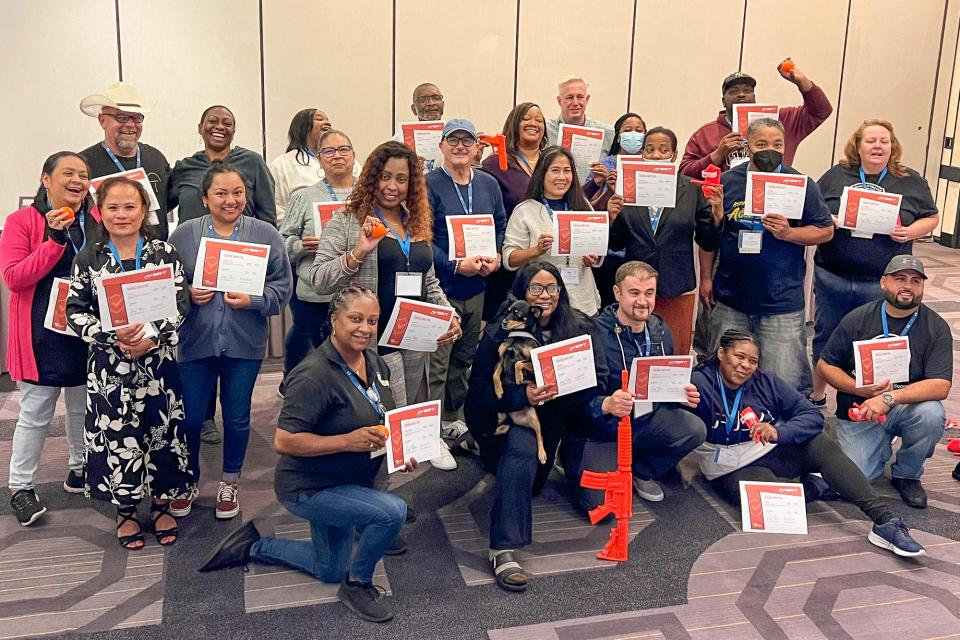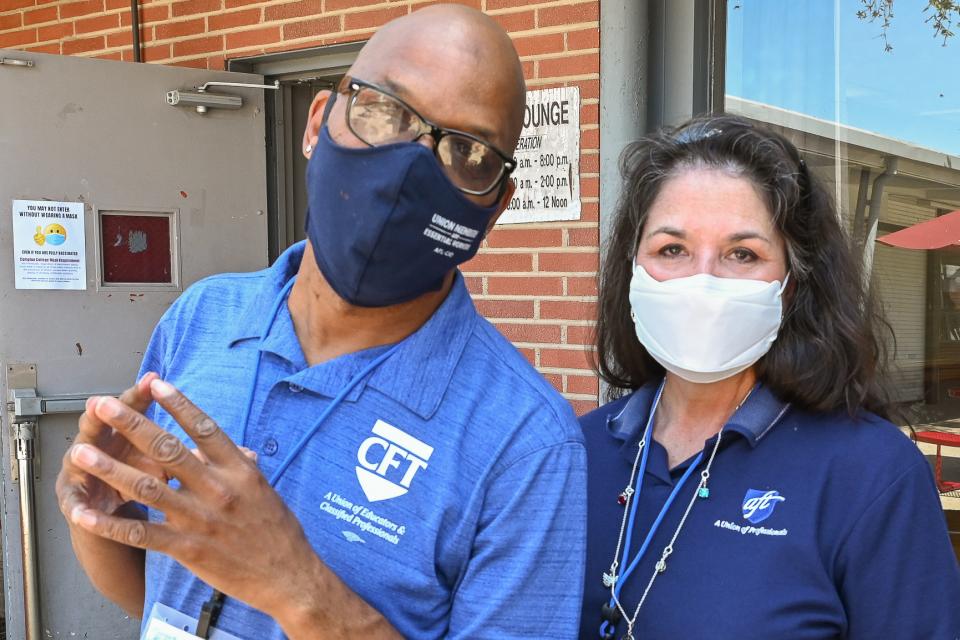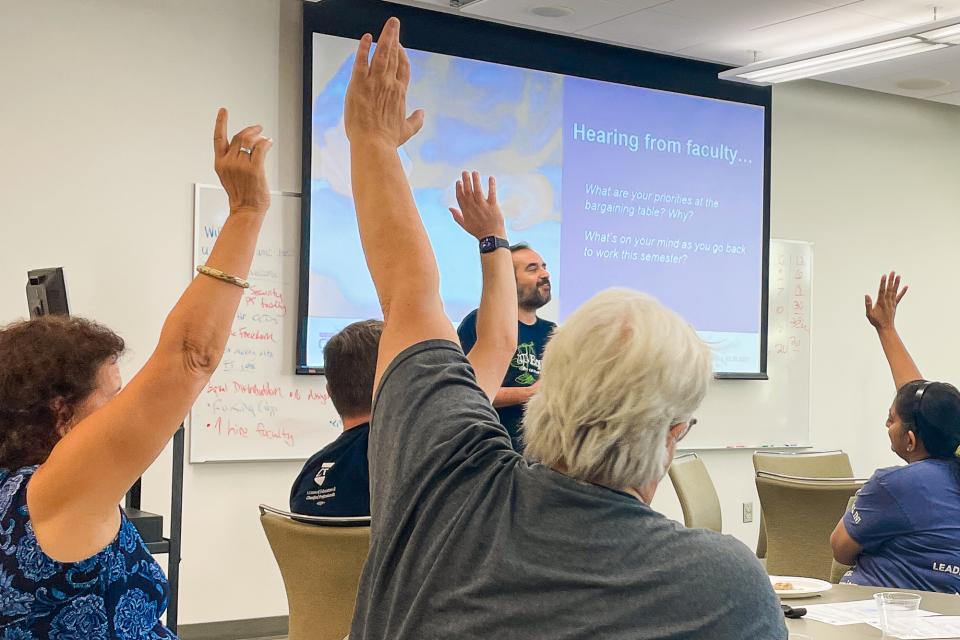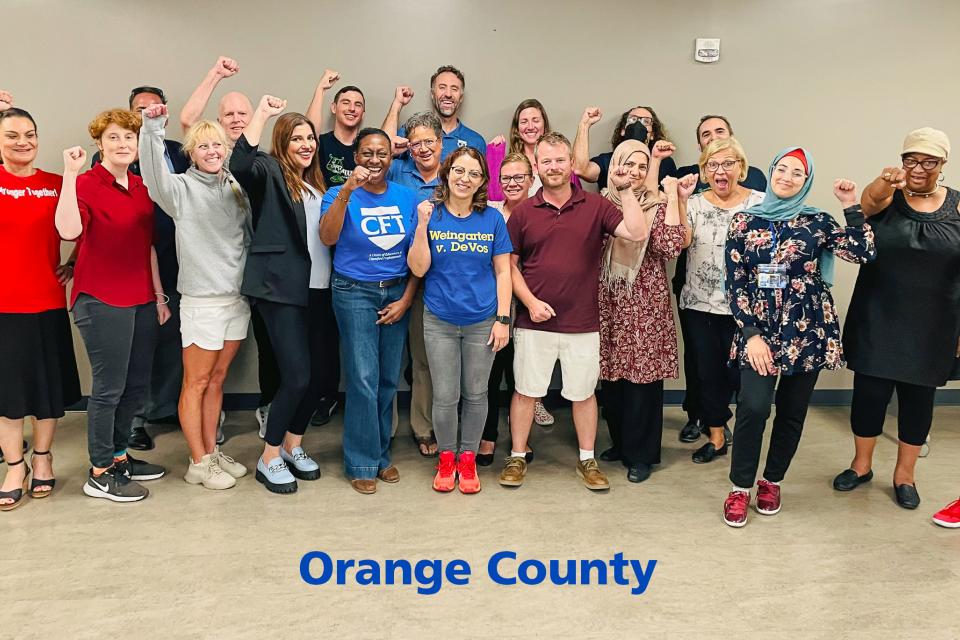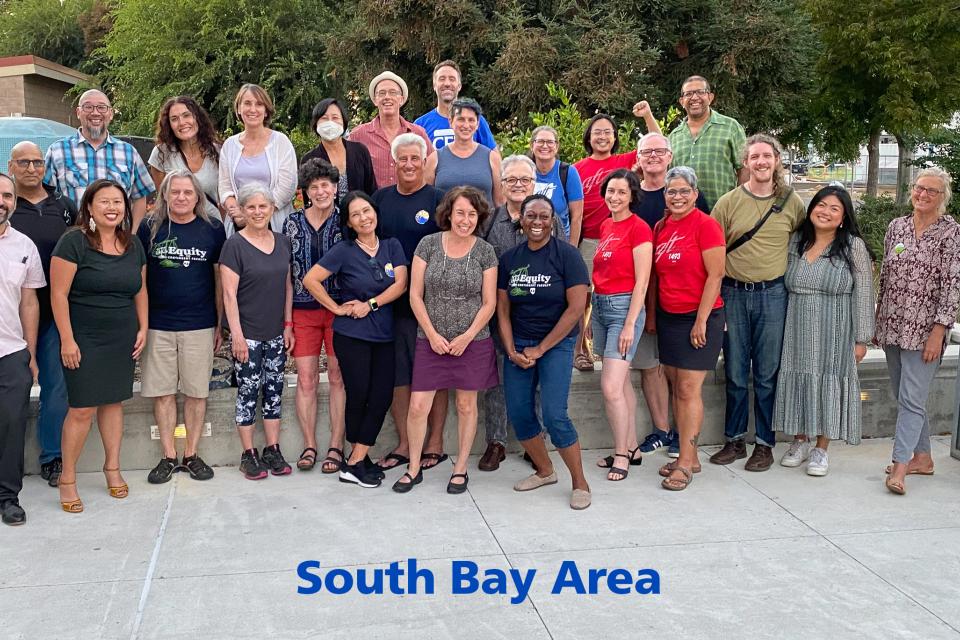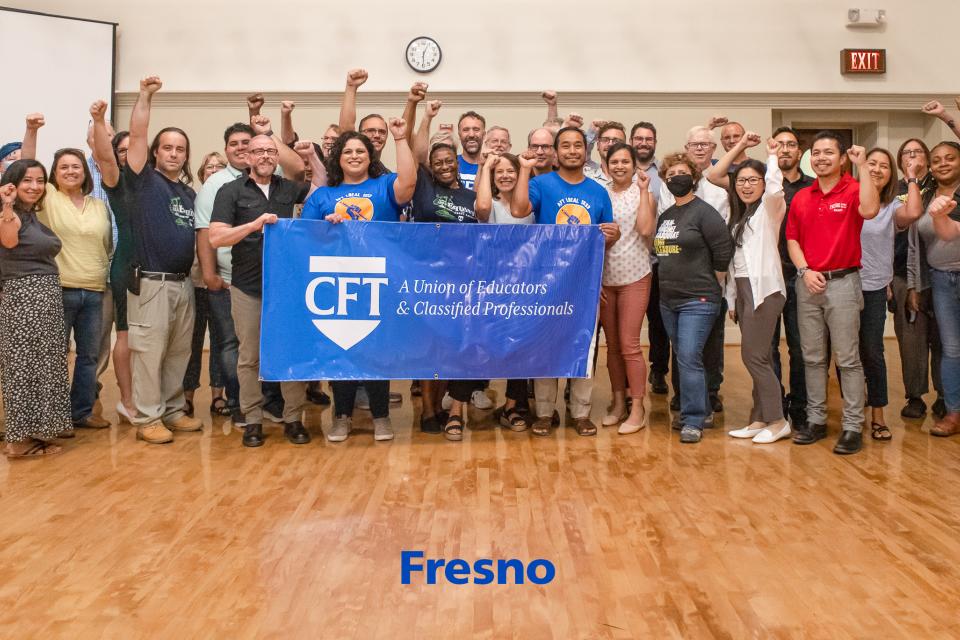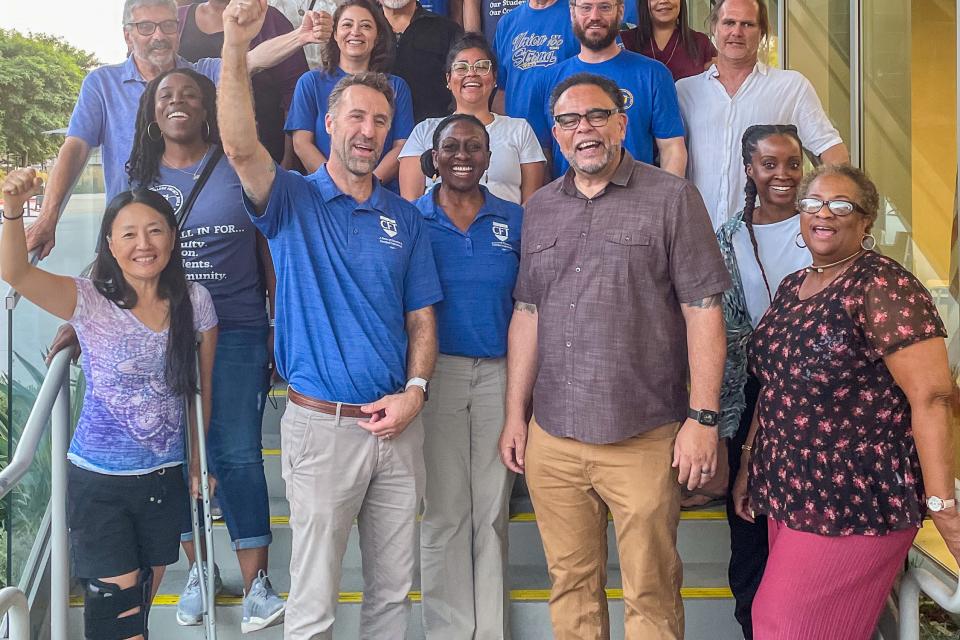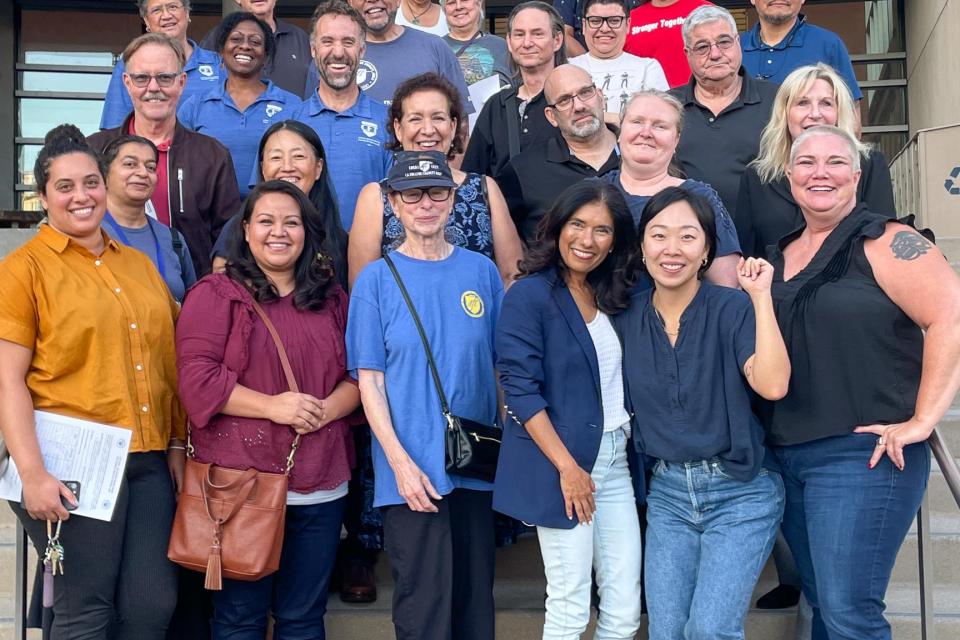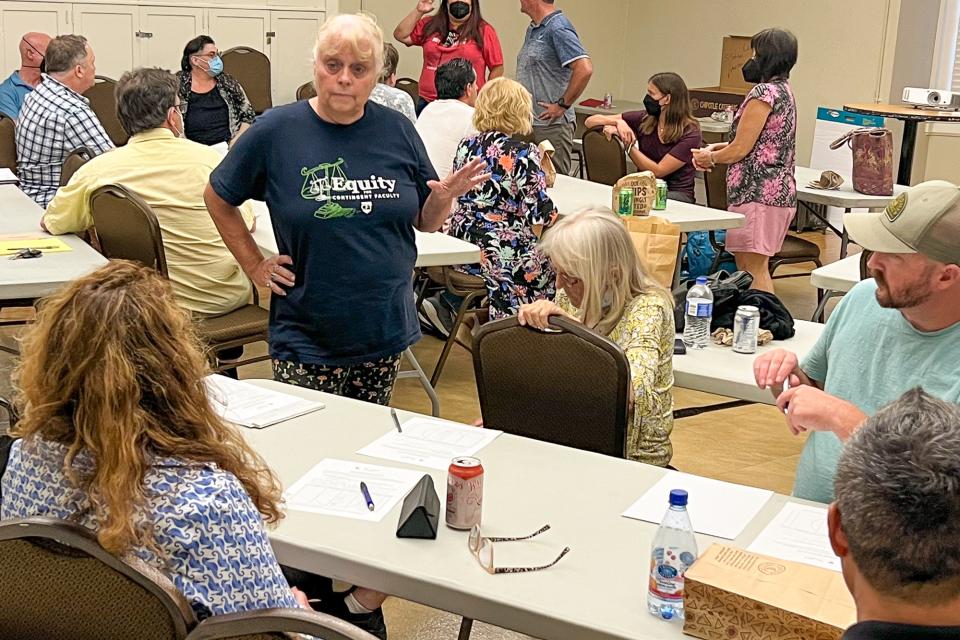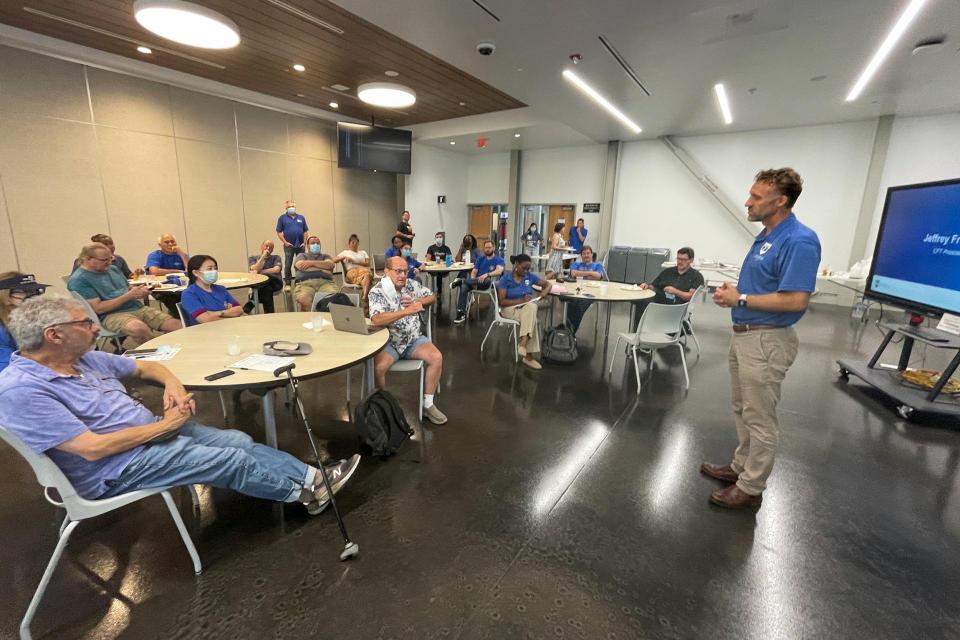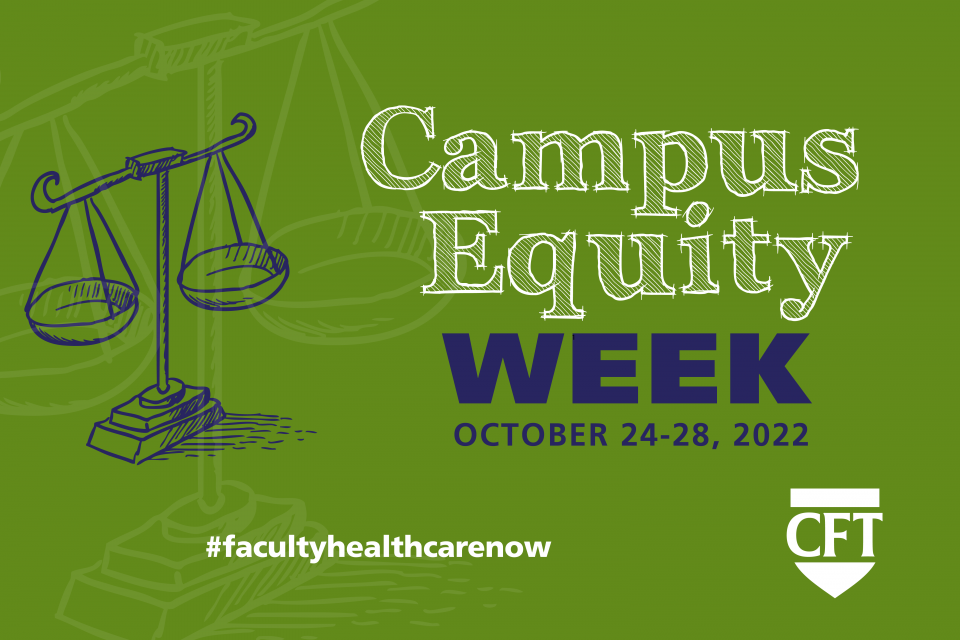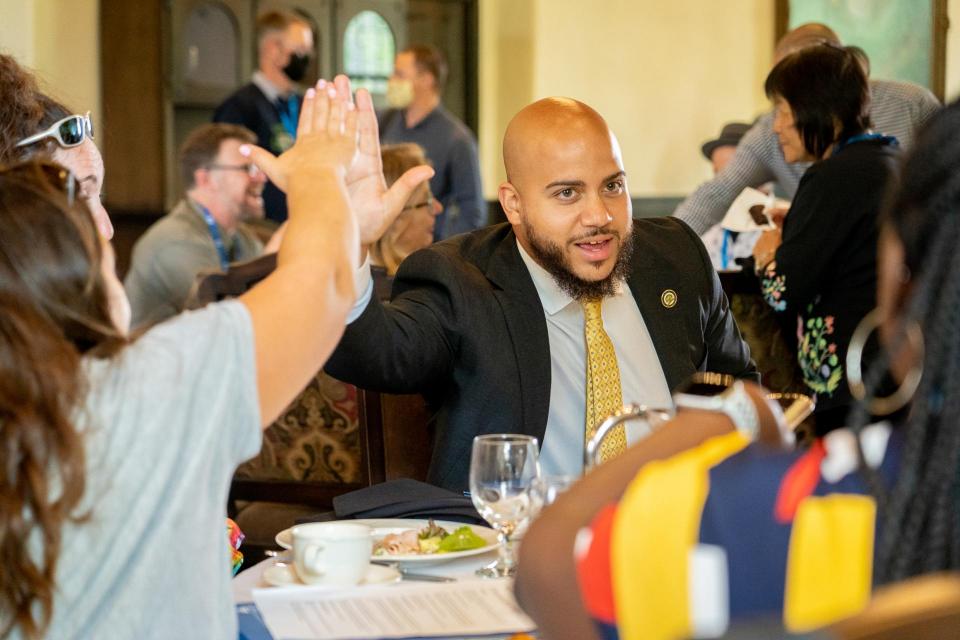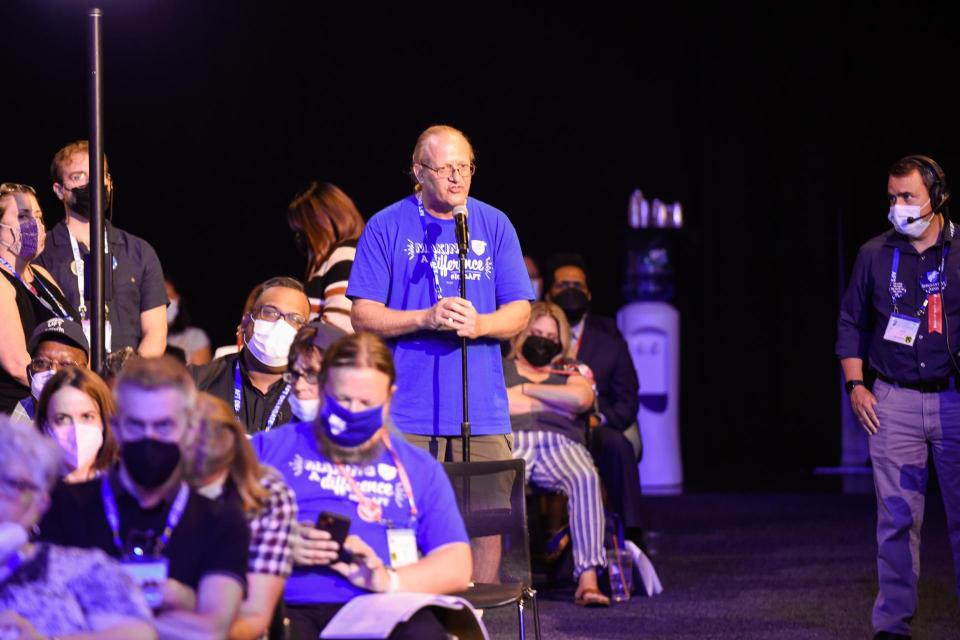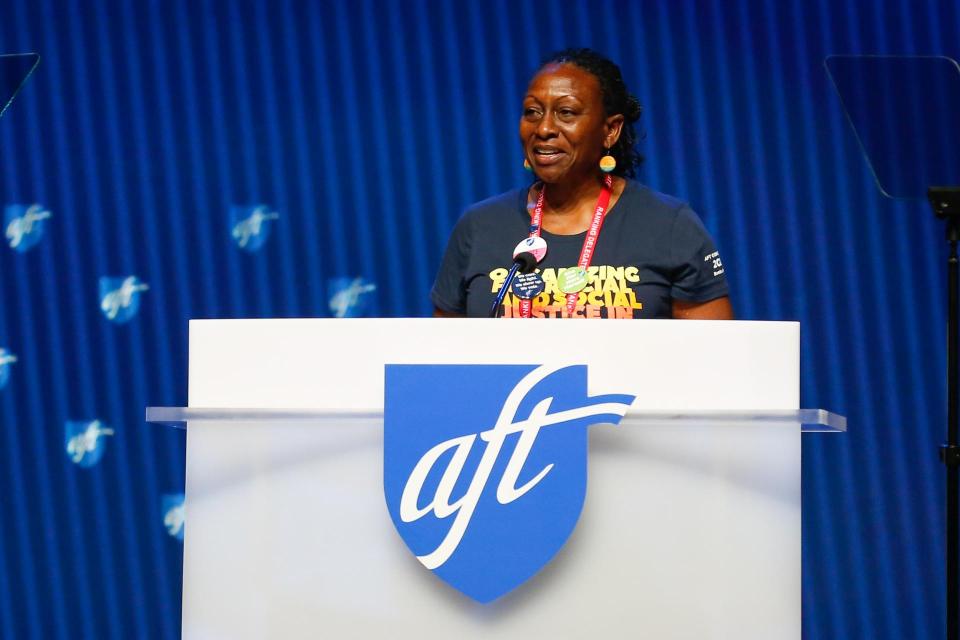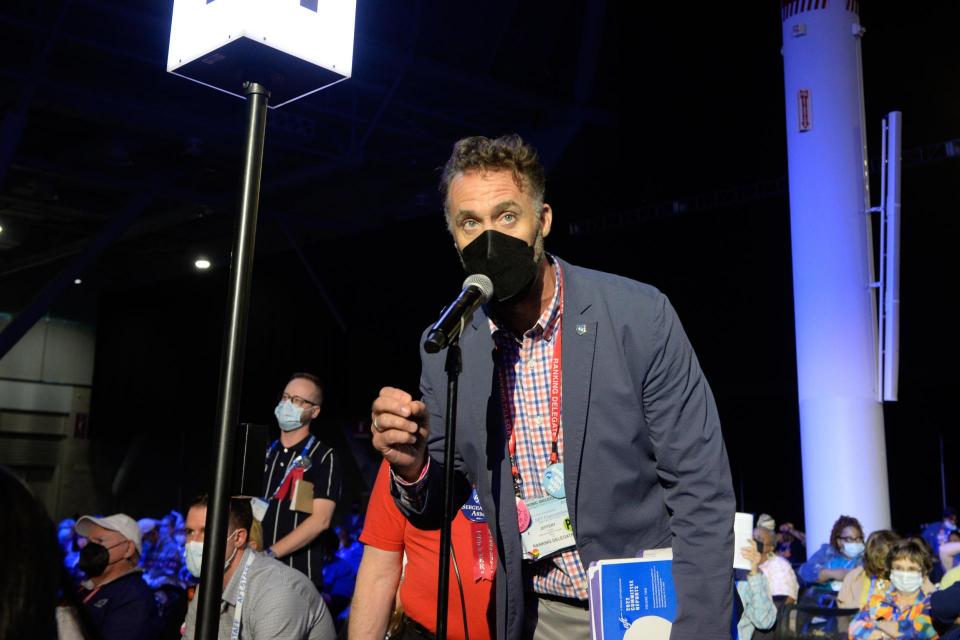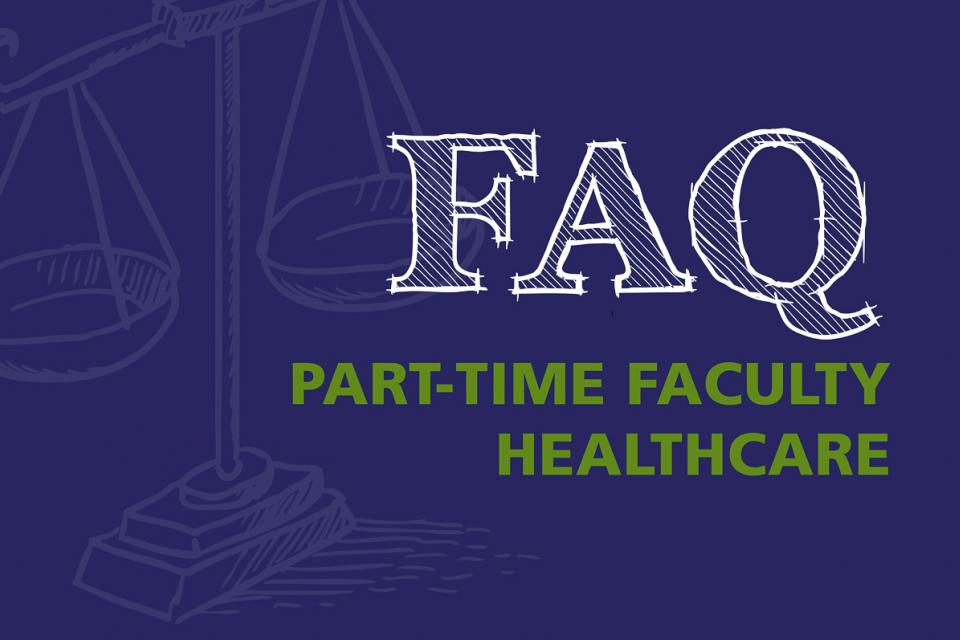Newsroom
CFT-sponsored wealth tax introduced in California Assembly
Part of coordinated effort with seven other states
In a concerted effort with seven other states, yesterday CFT President Jeff Freitas and Assemblymember Alex Lee (D-San José) reintroduced a tax on extreme wealth in California as AB 259 and an accompanying proposed constitutional amendment, ACA 3.
How CalSTRS and CalPERS pensions are protected from inflation
Governor signs CFT-sponsored legislation to provide earliest CalSTRS retirees another supplemental check
Both CalSTRS and CalPERS have mechanisms in place to guard a retiree’s defined benefit pension against eroding purchasing power. The first is a cost-of-living adjustment, or COLA, and the second is a “floor” below which the buying power of a pension cannot fall. Now thanks to a CFT-sponsored bill recently signed by Governor Newsom, CalSTRS retirees from earlier decades will see additional relief.
Classified professionals move from “Aspiration to Action”
Conference gives front-line activists the tools to organize and lead during troubled times
First came the pandemic protocols. About 100 participants from 15 AFT locals across California had to test negative for COVID before entering the Council of Classified Employees conference area.
Then came the fireworks. “We need to march in the Capitol for the next Classified Appreciation Week. If they don’t want to recognize the work we do, we need to toot our own horn,” CCE President Carl Williams roared in his welcoming speech. Williams drilled down on “Aspiration to Action,” the conference theme.
AVERTing disaster: Every second counts
Surviving an “active shooter” on campus takes quick decisions and actions
The names of the schools are etched in our minds: Columbine High, Virginia Tech, Sandy Hook Elementary, Marjorie Stoneman Douglas High, Uvalde Elementary. Gunmen with grudges have struck at all grade levels and in every corner of the country.
Most shootings take place at businesses, but news stories more often focus on schools. Deadly shootings are, in fact, tearing up U.S. schools at a record pace. According to Education Week, as of October 24 there have been 40 school shootings this year, with a toll of 34 dead and 88 injured.
Carl Williams tapped to co-chair AFT PSRP Program and Policy Council
Demystifying the acronyms, from AFT and CFT to PPC and CCE
The AFT groups classified employees, support staff, and paraprofessionals together in its Paraprofessionals and School-Related Personnel (PSRP) division, representing more than 370,000 workers in public and private preK-12 schools, colleges, and universities across the nation.
CFT’s due process bill succeeds, puts classified on even footing with faculty
Summer Assistance expands to community college staff, Juneteenth becomes official school holiday
Governor Newsom capped the 2020-22 legislative session by signing a flurry of bills that CFT sponsored, co-sponsored or supported. Senate and Assembly bills with strong bearing on classified employees ranged from due process during workplace appeals, to a fair repayment plan for accidentally overpaid wages.
Following are the new laws CFT fought to win for classified employees and paraprofessionals.
Local bargaining for part-time faculty healthcare ramps up
Phase 2 of Part-Time Faculty Campaign kicks off with regional meetings, negotiations training, Campus Equity Week
Securing annual funding for part-time faculty healthcare is an unprecedented legislative win. The next step is to secure that healthcare at the local bargaining table.
Legislative high and low for part-time faculty
Healthcare funding increased in state budget, but higher workload cap vetoed
California community college adjuncts saw the single greatest gain for part-time faculty ever—$200 million in ongoing annual funding for part-time faculty healthcare—but felt bitter disappointment when CFT’s sponsored bill to lift the teaching cap to 85% of a full-time load died for a second time on Governor Newsom’s desk.
AFT resolution asks U.S. Department of Education to conduct higher ed study
Calls for national data about adjunct/contingent pay and benefit inequities
CFT once again demonstrated its commitment to adjunct/contingent faculty by submitting and winning unanimous passage of its resolution “Calling for Department of Education Study of Pay and Benefit Inequity” at the AFT Convention July 15 in Boston.
Governor signs six CFT bills, plus budget trailer bills with union priorities
Legislative Update
Governor Newsom signed six union bills at the end of September that the CFT successfully lobbied in both houses of the Legislature. The CFT had sponsored or co-sponsored 16 legislative bills alongside several budget proposals in the last year of the 2020-22 legislative session. A majority of these priorities made it to the governor’s desk or were included in the state budget, with only one bill being vetoed by the governor.
FAQ: Part-time faculty healthcare, collective bargaining & state budget
Answers to common questions
Updated September 27, 2022
This year we won a historic expansion of state funding for part-time community college faculty healthcare, increasing state support from $490,000 to $200 million in ongoing funding.
The funding will enable local community colleges to provide quality, affordable, and accessible healthcare to substantially more part-time faculty. Local unions should now prepare to go to the bargaining table to negotiate the healthcare implementation.
What budget trailer bills mean for education workers
Legislative Update
On September 30, Governor Newsom signed the final budget trailer bills sent to him by the Legislature after passing the bills and a “budget junior” on August 31. Budget trailer bills are created by the Committee on Budget to provide technical language for the implementation of fiscal allocations. The budget junior bill includes additional allocations as well as additional items necessary for implementation of some July budget expenditures.
The budget-related bills go into effect immediately. CFT priorities in the budget trailer bills are listed below.

